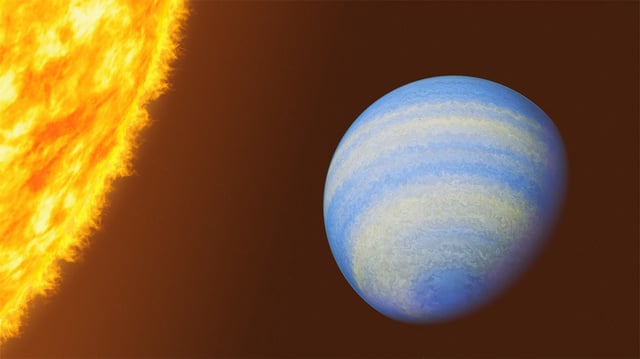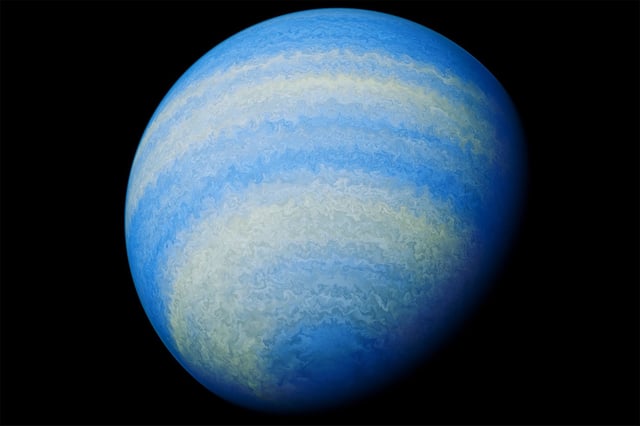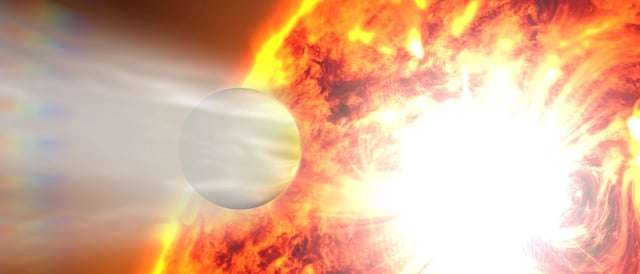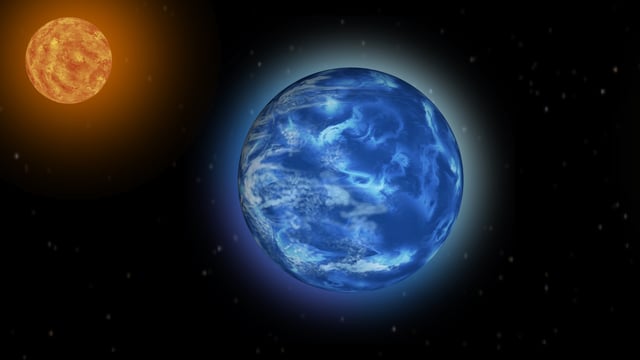Overview
- HD 189733 b, a hot Jupiter exoplanet, has hydrogen sulfide in its atmosphere, causing a rotten egg smell.
- The planet's extreme weather includes glass rain and 5,000 mph winds, making it highly inhospitable.
- Researchers aim to understand how sulfur affects the formation and composition of gas giants beyond our solar system.
- The James Webb Space Telescope's findings challenge previous assumptions about methane in HD 189733 b's atmosphere.
- Future studies will track sulfur in other exoplanets to explore its influence on their proximity to parent stars.



